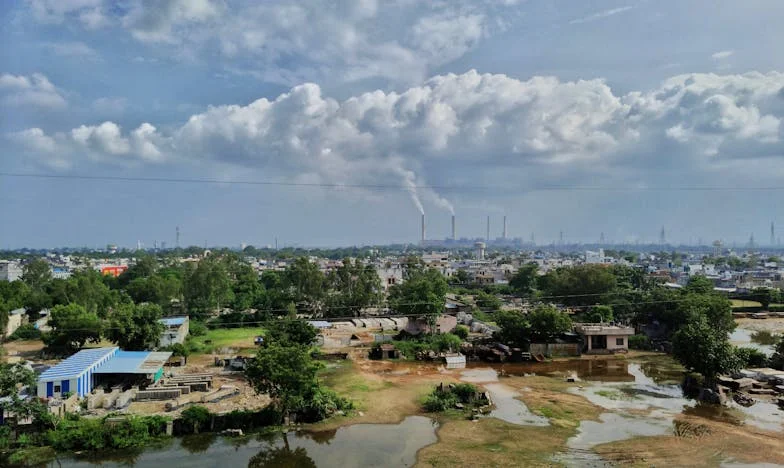A Child on My Doorstep: Love, Secrets, and the Weight of Truth
The knock was so faint, I almost thought I’d imagined it—just a brittle tap-tap-tap on the glass, barely audible over the winter wind howling through our little Michigan town. It was 1:47 AM. I know because I’d been staring at the clock, wide awake, wondering how I’d pay the heating bill that month. When I opened the door, the cold slapped me in the face, but not as hard as the sight on the porch: a bundled blanket, shivering, and the tiniest, most desperate whimper I’d ever heard. I dropped to my knees. There he was—a newborn. Pink, blue-eyed, a hospital bracelet still clinging to his wrist. My heart stopped and all I could think was, Who could do this?
A note was pinned to his blanket. “Please, just love him,” was all it said. I looked down the street—no cars, no footprints in the snow. I gathered him up, pressing him to my chest, feeling that impossible weight of sudden responsibility, terror, and something else: a fierce, overwhelming love.
I was 29, recently divorced, barely scraping by as a waitress at Denny’s. My family—my mother and my older brother, Mike—lived two towns over. I hadn’t told them about the miscarriage that broke my marriage. I hadn’t told them how lonely I’d become. I certainly didn’t tell them about the baby I found that night. I named him Jacob.
I told everyone—my landlord, my coworkers, the nosy neighbors—that he was mine, born premature, that’s why no one saw me pregnant. It was a lie I told so often, I almost believed it myself. The pediatrician gave me a long look, but I’d found a way—saying I’d had him at home, it was so fast, an accident, a fluke. Small towns love gossip, but they also love a good story. People moved on, mostly. Except for Mrs. Green from next door, who once hissed, “Babies don’t just appear, Sarah.”
Jacob grew. He was bright, loving, stubborn as hell. He called me Mama, clung to my hand at the bus stop, drew me cards that said, “Best Mom EVER.” He had a crooked smile and a laugh that made even my hardest days at Denny’s worth it. But every birthday, every doctor’s visit, every time he looked at me with those blue eyes so different from my brown, the secret pressed heavier on my chest.
“Why don’t I look like you?” he asked when he was eight, his little face scrunched with confusion. I panicked. “You have my heart,” I told him, tears stinging my eyes. But he wasn’t satisfied—not then, not ever.
The years passed in a blur of scraped knees, spelling tests, and late-night worries. He was smart—valedictorian smart. He got into the University of Michigan on a full ride. I cried when I dropped him off, the kind of ugly sobbing that makes strangers look away. But I was proud, too. I’d given him everything I had—my love, my time, my lies.
Then came the day he called me, his voice shaking. “Mom, I’m doing one of those DNA tests. For fun. Everyone in my dorm is.”
My heart plummeted. I wanted to scream, to beg him not to. But I just said, “That’s… great, honey.”
He called again two weeks later. “Mom, there’s no match to you. Not even distant cousins. What’s going on?” The words I’d rehearsed a thousand times jammed in my throat.
He drove home that weekend. I made him his favorite—mac and cheese, from scratch. He barely touched it.
“Tell me the truth,” he said, his knuckles white around his fork. “Who am I?”
I broke. Decades of guilt, love, and fear poured out of me. I told him everything—the knock, the note, the freezing night, the way I’d loved him instantly, fiercely. I told him I’d been so afraid he’d be taken away from me, so afraid he’d hate me for lying.
He stared, silent, then pushed his chair back and left. He didn’t answer my calls for days. I barely slept, barely ate, haunted by the echo of his last words: “I don’t know who I am anymore.”
Weeks later, he came back. He was gaunt, tired, but his eyes—the same clear blue—were softer.
“I found her,” he said quietly. “My birth mother. She was sixteen. She thought she was doing the right thing. She wants to meet me.”
I braced myself for him to say goodbye. But instead, he reached for my hand.
“I have two mothers,” he said. “But you—you’re the one who stayed.”
We met her together, in a coffee shop in Ann Arbor. She cried. I cried. Jacob cried. There were no easy answers, no perfect fixes. But there was forgiveness. There was love, messy and complicated and real.
Sometimes, late at night, I still wonder—did I do the right thing, keeping him? Was my love enough to make up for my lies? I want to ask: Can family ever truly survive the secrets we keep for love?
